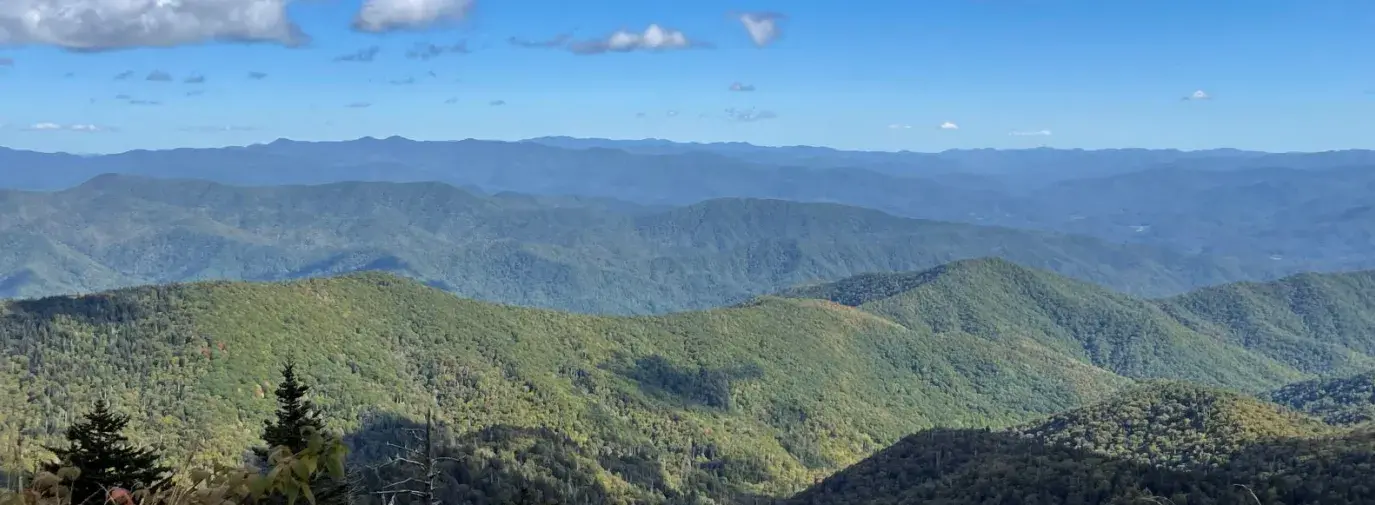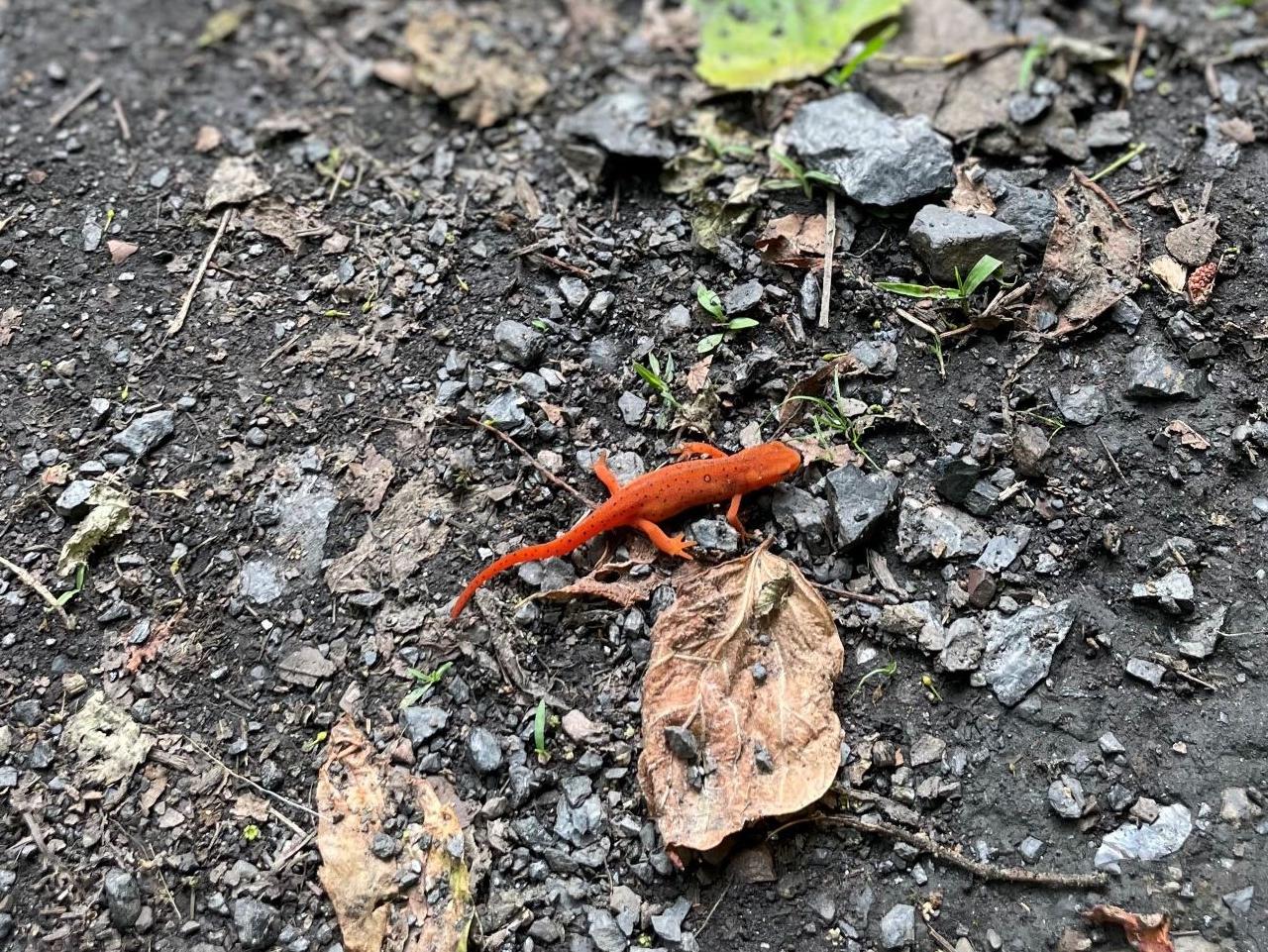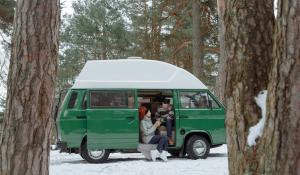
Truth be told, I did not touch grass until my late twenties. Being in nature felt unnatural—I grew up in the world’s fourth most densely populated city, Dhaka, the capital of Bangladesh. With over 60,000 people in each square mile, there is not much room for nature to thrive in the megapolis. There are trees, shrubs and bushes, even a couple of grassy fields strewn around the more planned areas of Dhaka, but none of it was for me—I spent my childhood stuck in the concrete walls of my family home.
If I wanted to take a walk, my mother told me to do laps along the long hallway of the house, under certain conditions. I had to wear modest clothes and remain alert so that I would not bump into the many male guests visiting my grandfather for business. I was taught to hide myself and my body, for safety, modesty, religion—all placeholders for misogyny and patriarchy. The teachers in my P. E. class were only concerned if every girl had their uniform ironed and their nails trimmed. Sometimes we were divided into groups of ten to race in the parking lot. I was chubby, unathletic, and I was laughed at whenever I attempted to run. I ended up with an underdeveloped sense of spatial awareness and extreme feelings of shame about my body, and I retreated into books and computer games.
My relationship with nature and movement—two core facets of hiking—was fraught. The thought of being in nature, struggling in nature, made me uncomfortable. Then I went to graduate school in a sleepy little college town nestled in the Blue Ridge Mountains. Surrounded by vast, uninterrupted forests and very few people, I felt like I was on a different planet.
Learning to Live Within Nature
A day after I arrived in Blacksburg, VA, I went to the neighborhood bank to open an account. The manager asked me how I liked the place. “I am in shock… it’s so empty and silent,” I said. Having lived in Chicago, he understood my shock and gave me a few recommendations for things to do around town. “It’s not a big city, but when you live in Blacksburg, you learn to appreciate nature,” he assured me, and I let out a huge sigh. Enjoy nature? Step on mud? Get poked by thorny branches? Trip on a rock? A city slicker like me could never!
I remained a hater during my first year in Blacksburg and spent my weekends missing the cacophony of Dhaka’s streets. By my second year, I had grown accustomed to the silence, and I began taking walks around my neighborhood—an unfamiliar luxury. I was surrounded by mountains that changed colors at different times of the day. There were little critters hopping by—a squirrel here, a ladybug there. I heard birdsongs more clearly than ever. I noticed things. The oddballs and strange occurrences that I loved to observe in my hometown of 20 million people were replaced by the calm and beauty of, dare I admit, nature. I was in awe of the Appalachian Mountains and for the first time in my life, I wanted to get closer. I wanted to know what lay hidden inside the old growth forest that hugged Blacksburg.

From Hater to Hiker
This desire to level up my walks could only be satiated if I took a hike, but I was still scared and made excuses. I am not fit enough! I have asthma! My lungs will dry out! I walk weirdly and everyone will laugh at me! In reality, the main obstacle was that I did not have a car (it is ironic that hiking can be inaccessible without a car). So, I acquired my Hyundai Sonata from Facebook Marketplace, and drove out to Pandapas Pond, a recreational nature reserve bordering Jefferson National Forest.
I took baby steps to accustom myself to hiking, literally and figuratively. At first, I would follow the flat boardwalk around the pond. Then I decided to try the easier trails inside the forest, and I was enthralled by the rhododendron groves and little creeks. After that, I attempted hikes with higher elevation gain and caught some breathtaking views of the Blue Ridge Mountains. It was not easy. I panted, cussed, turned red, almost cried—but I persisted. The crisp mountain air gave me new life instead of triggering my asthma. No one laughed at me, no one cared what I was doing. I was free! I felt safe in the embrace of nature, frolicking in the meadows, jumping over creeks, experiencing the beauty of the world like I never had.

Nature Is For Everyone!
Hiking seems much more intimidating than it is. There is no shame in opting for easy and/or short hikes. There are trails of all difficulty levels, and I do not expect to trek Mount Everest. The beauty of hiking, as opposed to running a race in my school parking lot, is that there are no winners or losers. To me, hiking has been about observing, being mindful, and taking things slow. It has been about falling in love with nature and appreciating my body for doing its best. Over time, hiking has allowed me to develop a healthier relationship with exercise. It can be intense, but once you reach the top, the feelings of satisfaction and triumph are unmatched.
If you are a hiking hater like I was, then I hope my story inspires you to attempt a short hike. I will leave you with some advice:
First, stay hydrated. I recommend opting for a reusable, cute water bottle from Elemental Bottles instead of plastic bottles.
Second, ditch your tote bag for a backpack, because it is much more comfortable and does not restrict your movement. If you are planning to invest in a backpack, Lux and Nyx has sturdy, functional pieces that are perfect for rough use.
And finally, keep pushing through. Remember, hiking is not a sprint. You can and should take your time to smell the rhododendrons on your way to the top.







